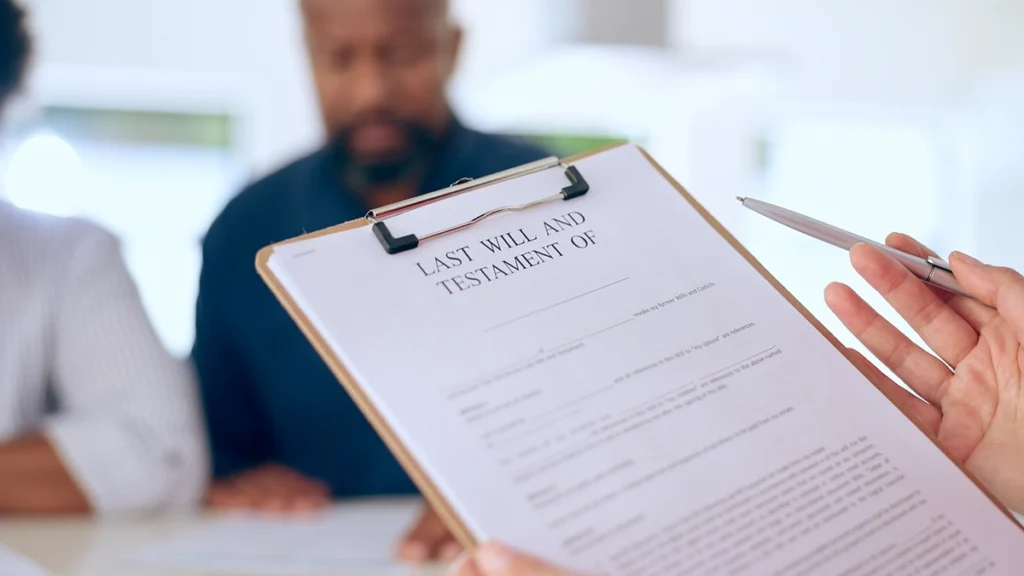Every homeowner wants the same thing: to protect what they’ve built and make sure their family is cared for when they’re gone. Yet few realize how simple that peace of mind can be.
Choosing Lady Bird Deed Now means more than completing a legal form; it’s a decision rooted in love, protection, and family values. It allows you to keep full control of your home during your lifetime while ensuring it transfers smoothly to your loved ones later, without probate, delays, or stress.
The result is confidence that your family’s future is secure and your legacy will endure.
Here’s what you can expect and the lasting benefits when you choose Lady Bird Deed Now.
Understanding The Basics
A Lady Bird Deed allows a property owner to transfer their home directly to heirs while keeping full control during their lifetime. That means the owner can sell, refinance, or change beneficiaries without anyone else’s approval. Unlike a traditional life estate deed, this flexibility makes Lady Bird Deeds unique.
It is important to note that Lady Bird Deeds are only recognized in Florida, Texas, Michigan, West Virginia, Vermont, and North Carolina.
Why Homeowners Consider This Path
The biggest reason families choose a Lady Bird Deed is to avoid probate. Probate is the legal process of validating a will and settling an estate through court. It can take months or even years, and it often costs thousands in legal fees. By contrast, a Lady Bird Deed transfers ownership automatically upon death, once a death certificate is recorded.
Another important factor is that the deed, when properly executed, overrides a will for the property it covers. This gives homeowners confidence that their wishes will be carried out exactly as planned, regardless of what their will might say about the home.
The Process Of Choosing Lady Bird Deed Now
Step One: Initial Consultation
When a homeowner first connects with Lady Bird Deed Now, the process begins with an explanation of what the document does and whether it applies in their state. Many people arrive with the assumption that only a will is necessary. This step clarifies the unique protections a Lady Bird Deed provides.
Step Two: Gathering Property Information
The homeowner will provide details such as the legal property description, names of future beneficiaries, and any mortgage information. Clear records make drafting the deed smooth and accurate.
Step Three: Drafting The Document
The deed is prepared with precise legal wording. It includes the retained rights of the current owner, such as the ability to sell or mortgage the property. At this stage, many families find comfort knowing the deed does not trap the owner into a decision that cannot be changed.
Step Four: Execution And Recording
Once the homeowner reviews and signs the document, it must be notarized and filed with the county recorder. This step makes the deed legally binding. From there, the property is positioned to pass smoothly to heirs without court involvement.
How It Impacts Families
The effect of choosing a Lady Bird Deed goes beyond paperwork. It can change the way families experience loss and transition.
For example, imagine a 72-year-old homeowner in Florida who wanted her son to inherit the house she had lived in for decades. She feared that probate would add stress for him during an already emotional time. By recording a Lady Bird Deed, she kept control of her home while alive.
Years later, when she passed, her son simply filed the death certificate, and the property became his instantly. The family avoided costly legal battles and the uncertainty of court delays. This kind of outcome is why many families turn to Lady Bird Deed Now.
Advantages Beyond Probate
Maintaining Control
Unlike other deeds, the homeowner can change their mind. Beneficiaries can be updated, and property rights remain in the hands of the owner until death.
Medicaid Planning Considerations
In many cases, a Lady Bird Deed does not count as a completed transfer for Medicaid purposes. This means the property may still be protected while the owner qualifies for assistance. However, laws vary by state, and families often review these issues with an elder law attorney.
Clarity For Heirs
A Lady Bird Deed reduces conflict by making inheritance straightforward. Because the document overrides the will for the property, there is no question about who receives it. This prevents disputes that often arise when multiple family members believe they have a claim.
Common Misunderstandings
Some homeowners worry that signing a Lady Bird Deed means giving up their rights. In fact, the opposite is true: the deed allows them to keep more rights than a traditional life estate. Others believe the deed can be used everywhere in the country, but that is not the case.
Another misunderstanding is that the deed replaces all estate planning needs. In reality, it complements other tools, such as wills and powers of attorney, but it does not cover everything a will would.
How Lady Bird Deed Now Simplifies The Journey
Many families feel lost when they first learn about probate. Lady Bird Deed Now focuses on making the process clear and approachable. Homeowners can expect plain language explanations, step-by-step support, and documents tailored to their state. Rather than navigating confusing forms alone, they receive guidance that ensures the deed is correctly executed and recorded.
What To Expect After Recording
Once the deed is recorded, the homeowner’s daily life continues unchanged. They can refinance, take out a loan, or even sell the property if they choose. The beneficiaries named in the deed have no rights until the owner passes. For many, this balance between security and flexibility is the greatest benefit.
When Lady Bird Deeds Might Not Be The Right Fit
Not every homeowner will find this option ideal. In states where the deed is not recognized, other estate planning tools must be used. In blended families, more complex arrangements may also be needed to avoid future disputes.
Additionally, some financial institutions may require extra clarification when refinancing a property with a Lady Bird Deed on record. These are not barriers, but they are points to review carefully during planning.
Final Thoughts
Choosing Lady Bird Deed Now means stepping into a process designed to protect families. It balances legal strength with human understanding, helping homeowners carry out their wishes with confidence. For those who qualify, the journey leads to fewer court battles, lower costs, and more peace of mind for loved ones.
Key Takeaways
- A Lady Bird Deed avoids probate by transferring property instantly upon death.
- The homeowner keeps full control of the property during their lifetime.
- Lady Bird Deeds are recognized only in Florida, Texas, Michigan, West Virginia, Vermont, and North Carolina.
- The deed overrides a will for the property it covers, providing clarity and reducing family disputes.



